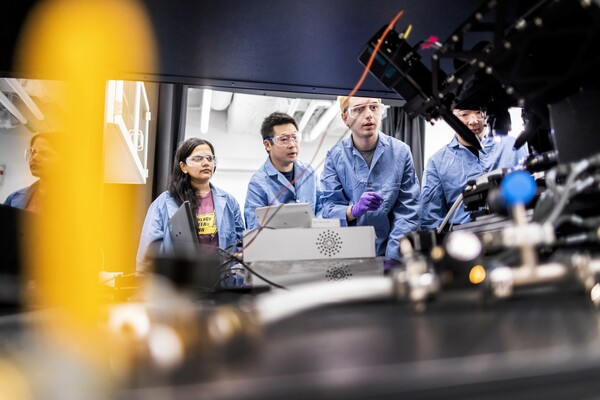
nocred
With this season of “Downton Abbey” concluded and “House of Cards” likely consumed in a binge-viewing session, fans of drama might be feeling at a loss.
Fortunately, the School of Veterinary Medicine has a means to fill the void. A live webcast from the New Bolton Center Campus is shining a spotlight on one of life’s most dramatic events: birth.
“We just thought this was a perfect scenario to provide people a window into what happens at New Bolton,” says Regina Turner, an associate professor of large animal reproduction at Penn Vet’s Hofmann Center for Reproduction and Behavior.
My Special Girl, an 11-year-old thoroughbred, is pregnant and due in mid-March, and Penn Vet’s “foal cam” is trained on the Neonatal Intensive Care Unit (NICU), where the mare will deliver her foal. Viewers will have to be dedicated to catch the birth live, however; most mares give birth in the middle of the night with a labor that lasts just 20 to 30 minutes.
This pregnancy is no ordinary occurrence. The conception resulted from a cutting-edge reproductive technique called intracytoplasmic sperm injection (ICSI). Penn veterinarians injected a single sperm from a donor stallion into a single egg from a donor mare. After the fertilized egg was cultured in the lab under special conditions for just over a week, the resulting embryo was transferred to My Special Girl, who has acted as a surrogate.
Turner says the technique, borrowed from the world of human medicine, could allow for the reproduction of valuable mares and stallions, even if they have fertility problems.
My Special Girl is part of Penn Vet’s teaching herd, which enables students to practice their examination skills and manage breeding. After she gives birth, the mare and foal will remain in the NICU for two days before being allowed outside to stretch their legs.
Veterinarians are keeping the foal’s gender a secret until delivery, but its future owner is already established. Rose Nolen-Watson, an assistant professor of medicine at Penn Vet, is set to adopt and one day help the foal pursue a career as a sport horse.
“The foal has the genetics to be a good sport horse,” says Turner. “If all goes well, maybe we’ll see it in the Olympics some day.”
Tune into the foal cam at the Penn Vet website.
Katherine Unger Baillie

nocred

Image: Pencho Chukov via Getty Images

The sun shades on the Vagelos Institute for Energy Science and Technology.
nocred

Image: Courtesy of Penn Engineering Today